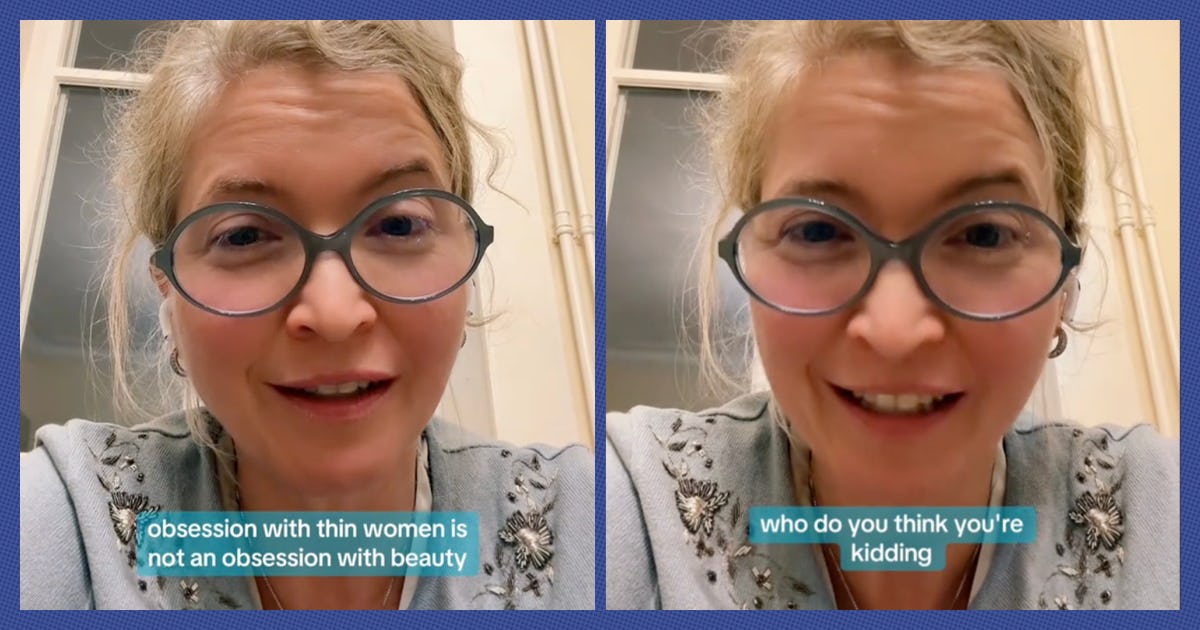As a Millennial woman, I came of age in the “heroin chic” ’90s and the early-2000s dominated by reality shows like America’s Next Top Model and The Swan (go ahead and give that one a Google if you’re not familiar: it’s a nightmare). I’ve spent a lot of time thinking about toxic beauty standards and diet culture, like Kate Winslet being compared to the boat in Titanic, and our collective confusion about Natalie being dubbed “enormous” in Love, Actually. Thinking about this takes up a lot of my brain space, and I like to think there are few angles I haven’t considered over the years. But my mind was absolutely blown when I heard Swiss bioethicist Samia Hurst offer her take on TikTok as one of 24 things she’s learned in 2024.
“Obsession with thin women is not an obsession with beauty, it is an obsession with obedience,” she asserts. And, already I feel this deep in the very marrow of my bones.
Hurst continues.
“I mean, wanting to be healthy is one thing, but come on: if you want to argue that thinness in women is really about health, who do you think you’re kidding? Since when would we collectively prioritize the health of women over the health of men to the degree of having such an obsession with thinness in women only if it was truly about health.”
Again: I’ve always known “I’m just worried about your health” was just not true.
“No no: there’s a reason why it’s harder for women to conform to societal expectations about our looks. It’s sort of the whole point that it be hard. The idea is to keep us occupied, and the degree to which we accept to be kept occupied by it shows the degree to which we are willing to obey.”
This perspective highlights the idea that, like so many “women’s issues,” thinness and diet culture ultimately come down to control. It’s easier to control women — our bodies, how we fit into systems of money and power — if our sense of self is tied to something we constantly have to maintain or be striving towards. Thinness itself, or constantly striving for thinness, becomes subconscious visual shorthand for society that a woman is doing her part in maintaining the (profoundly sexist) status quo.
As always, the only way to win this game is not to play.

